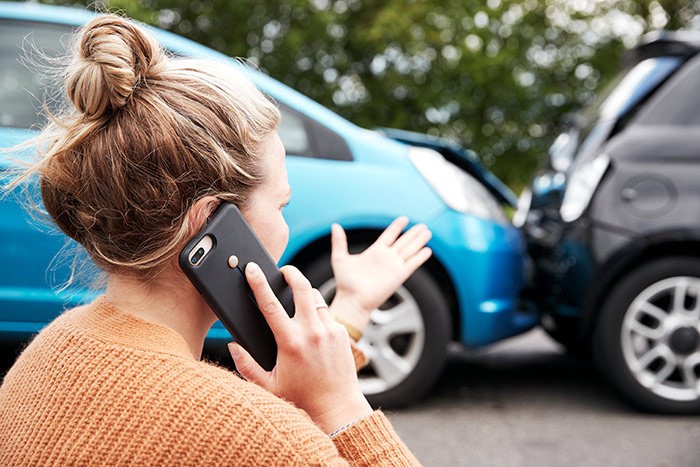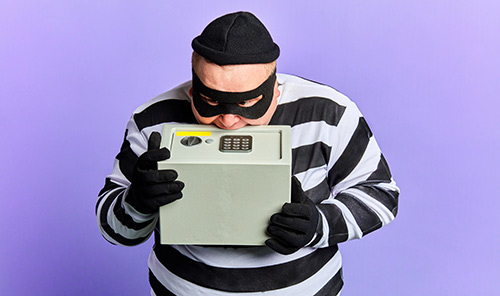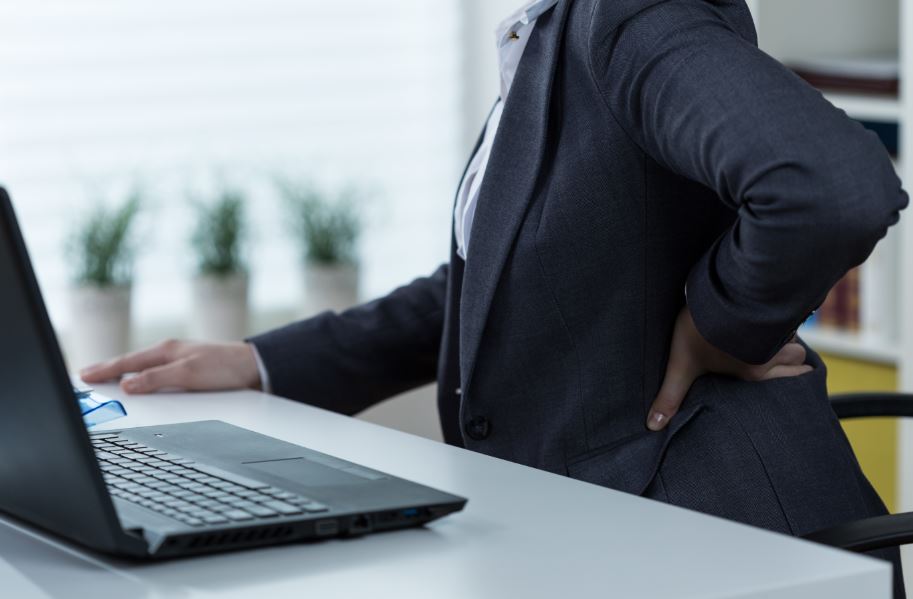
Whether you've gotten into a fender bender or totaled your car, accidents are scary. No matter the cause – weather and road conditions, irresponsible driving behavior, or something unforeseen – you should be prepared for any possibility. Even the most careful drivers can be involved in an accident, which is why we've provided these nine tips to help you get through an accident safely:
Check yourself and any passengers for injuries.
If you don't know whether a particular injury is serious, call 911 just in case.
Remain calm.
This one is easier said than done, but try to remain calm and take deep breaths to keep a clear head during this experience – there may be details you'll need to remember later you'll only recall if you were calm. If the accident was caused by another party, try to keep your cool and be polite.
Get moving.
If the accident was minor, move all cars involved to a safe place out of traffic. If the accident was more serious but you seem well enough to move, bring yourself and any other people involved to the side of the road, away from oncoming traffic. However, if you doubt the well-being of yourself or someone else involved, LEAVE THEM THERE. It may sound counter-intuitive, but moving someone while they're in a fragile state can cause even more harm – let the professionals handle the situation as they see fit.
If you doubt the well-being of yourself or someone else involved, be sure to alert emergency officials and follow their advice if it's to leave them there! Moving someone while they're in a fragile state can cause even more harm.
Take proper safety precautions.
Turn on your hazard lights and, if you have them, use cones to mark off the area. Carrying emergency flares in your trunk is a great idea to ensure that people can see you in the event of an accident.
Call the police.
Once everyone involved is as safe as they can be, call the police and inform them of the accident. For accidents like a fender bender, you're probably better off calling the non-emergency line in your area. If any kind of serious collision occurred, call 911 as soon as you can to make a full report and get the help you need.
Take a picture.
If you can, snap a few photos of each of the cars involved, including the license plate. This will protect you against fraudulent claims from the other people affected.
Exchange information.
Collect as much information as you can about the other parties involved, including the driver's name, address, phone number, insurance company, policy number, driver's license number and license plate number. If you feel that you caused the accident, do not claim fault with the other party - it makes things more difficult for you later!
Stay put.
No one should leave the scene of the accident until the police have arrived and you have filed a report. In most states, it's actually illegal to leave the scene of an accident, so stay where you are and wait for further instruction from the authorities.
Notify your insurance provider.
Report a claim with Lallis & Higgins Insurance, find your insurance carrier here or call 781-561-9031 for further assistance.
Stay safe out there and be prepared for whatever comes your way.
Source: foremost.com













